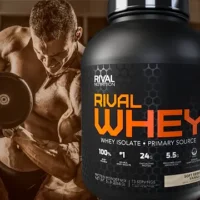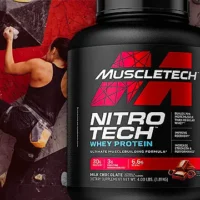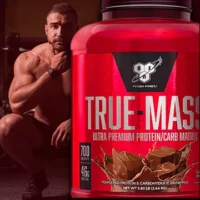Protein Guideprotein basics for beginners
How do I use protein powder?
Protein powders are a versatile supplement that can be tailored to various goals. Understanding the different types of protein powders, their optimal usage times, and their specific benefits can help enhance your nutrition regimen. Here’s a quick guide to using key protein powders effectively.
Muscle Development
Goal: To maximize muscle growth through increased protein synthesis and recovery.
- Whey Protein: Ideal for post-workout consumption due to its fast absorption, promoting rapid muscle recovery and growth. Best consumed within 30 minutes of exercise.
- Casein Protein: Best used before bed due to its slow digestion, providing a steady release of amino acids overnight, which aids in muscle repair and growth during sleep as well as preventing muscle cell breakdown.
- Mass Gainers: Useful for individuals struggling to meet their caloric intake due to an intense workout routine. Consume post-workout or as a meal replacement to support overall calorie and protein needs.
- Plant-Based Blends: Suitable for vegans or those with dairy intolerances. Ensure the blend provides a complete amino acid profile. Can be used similarly to whey for post-workout recovery.
Athletic Performance
Goal: To enhance endurance, strength, and recovery, supporting overall athletic performance.
- Whey Isolate: Highly purified, low in carbs, fat and lactose, perfect for post-training recovery without the extra calories. Consume immediately after workouts.
- Hydrolyzed Whey: Pre-digested for faster absorption, ideal for quick recovery after intense training sessions. Use immediately post-workout.
- Casein: Useful for prolonged recovery periods, especially useful when consumed before periods of fasting, like sleep, to prevent muscle breakdown.
- Pea Protein: A plant-based option that is beneficial post-workout, especially for those who follow a vegetarian or vegan lifestyle. for best results a combination of pea and rice protein provides a complete protein source.
Weight Loss
Goal: To support dieting efforts by enhancing satiety, maintaining muscle mass, and aiding in overall caloric management.
- Meal Replacement Shakes: Calorie-controlled and nutrient-balanced to replace a full meal, helping to reduce overall calorie intake. Consume in place of breakfast or lunch.
- Whey Concentrate: Helps in feeling full and satisfied, use between meals as needed to help decrease hunger and snack cravings.
- Casein: Due to its slow digestion, it's perfect for staving off cravings throughout the day.
- Pea Protein: Enhances satiety due to its high protein and fiber content. Use as a snack or meal addition to control cravings and reduce hunger.
Additional Considerations
- Hydration: Protein consumption requires increased hydration to aid in metabolism and prevent dehydration.
- Balanced Diet: Protein powders should complement a balanced diet that includes a variety of other nutrients from whole foods.
- Professional Guidance: Consult a dietitian or nutritionist to tailor protein intake and supplement use to your specific needs and goals.
Find more information in our Protein Knowledge Base
The content on this site has not been written, reviewed or endorsed by a medical professional. We assume no liability for the misuse of supplements and recommend you review the label of any product, as well as consulting with your health care professional.
We are a participant in the Amazon Services LLC Associates Program, an affiliate advertising program designed to provide a means for us to earn fees by linking to Amazon.com and affiliated sites.
We are a participant in the Amazon Services LLC Associates Program, an affiliate advertising program designed to provide a means for us to earn fees by linking to Amazon.com and affiliated sites.
© 2025 ProteinPowder.com


